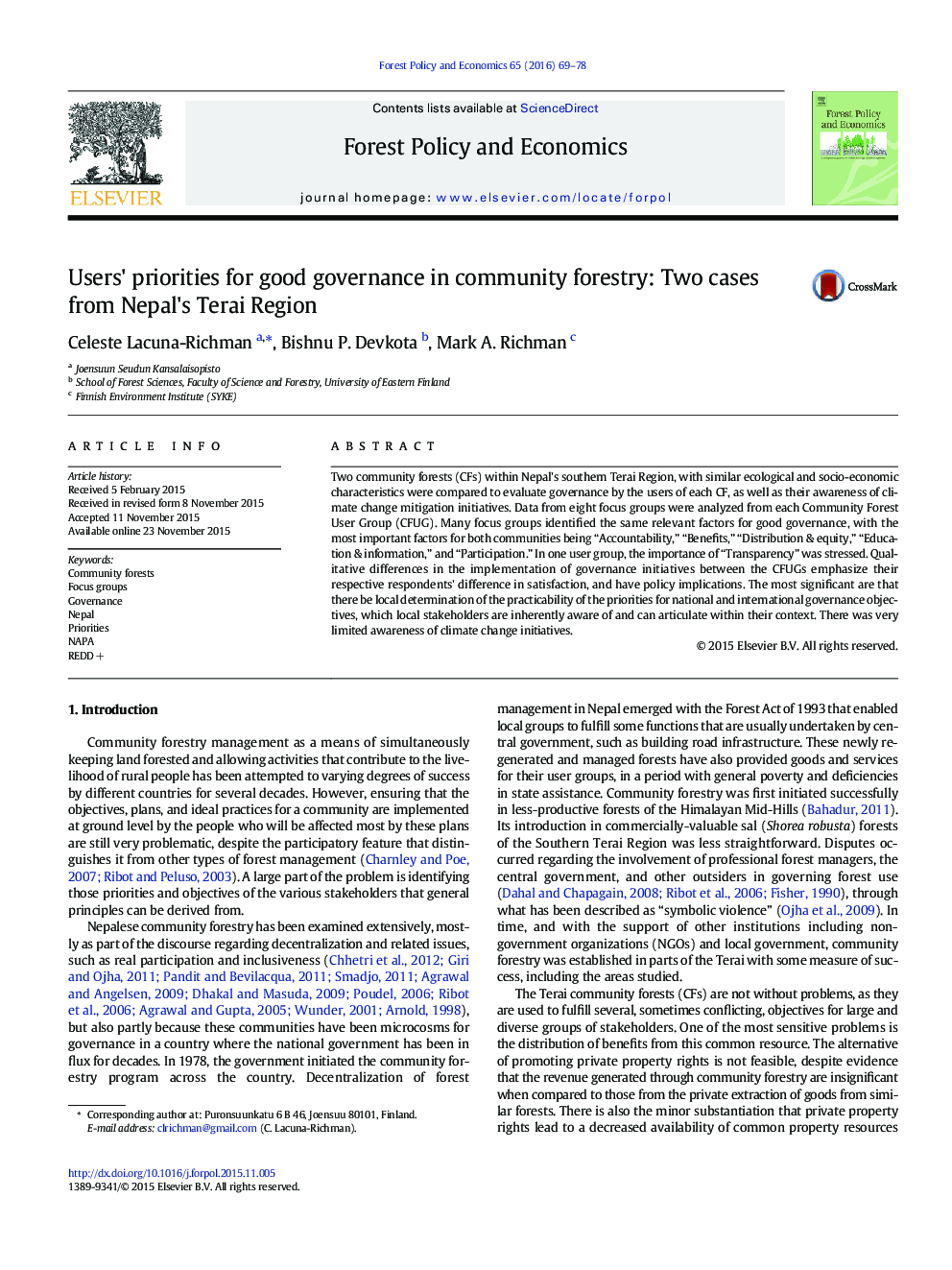| Article ID | Journal | Published Year | Pages | File Type |
|---|---|---|---|---|
| 6544896 | Forest Policy and Economics | 2016 | 10 Pages |
Abstract
Two community forests (CFs) within Nepal's southern Terai Region, with similar ecological and socio-economic characteristics were compared to evaluate governance by the users of each CF, as well as their awareness of climate change mitigation initiatives. Data from eight focus groups were analyzed from each Community Forest User Group (CFUG). Many focus groups identified the same relevant factors for good governance, with the most important factors for both communities being “Accountability,” “Benefits,” “Distribution & equity,” “Education & information,” and “Participation.” In one user group, the importance of “Transparency” was stressed. Qualitative differences in the implementation of governance initiatives between the CFUGs emphasize their respective respondents' difference in satisfaction, and have policy implications. The most significant are that there be local determination of the practicability of the priorities for national and international governance objectives, which local stakeholders are inherently aware of and can articulate within their context. There was very limited awareness of climate change initiatives.
Related Topics
Life Sciences
Agricultural and Biological Sciences
Forestry
Authors
Celeste Lacuna-Richman, Bishnu P. Devkota, Mark A. Richman,
